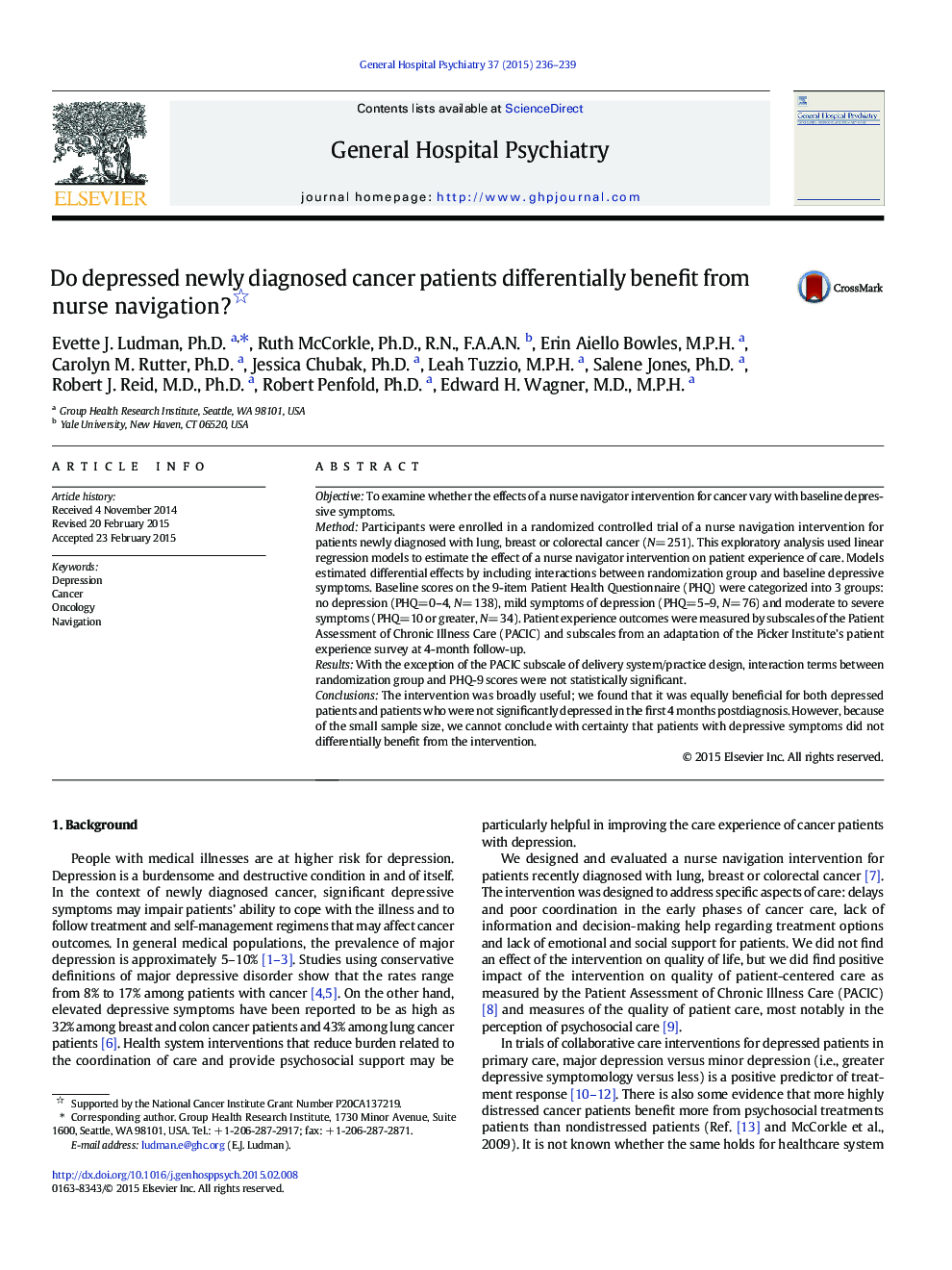| Article ID | Journal | Published Year | Pages | File Type |
|---|---|---|---|---|
| 3237625 | General Hospital Psychiatry | 2015 | 4 Pages |
ObjectiveTo examine whether the effects of a nurse navigator intervention for cancer vary with baseline depressive symptoms.MethodParticipants were enrolled in a randomized controlled trial of a nurse navigation intervention for patients newly diagnosed with lung, breast or colorectal cancer (N= 251). This exploratory analysis used linear regression models to estimate the effect of a nurse navigator intervention on patient experience of care. Models estimated differential effects by including interactions between randomization group and baseline depressive symptoms. Baseline scores on the 9-item Patient Health Questionnaire (PHQ) were categorized into 3 groups: no depression (PHQ=0–4, N= 138), mild symptoms of depression (PHQ=5–9, N= 76) and moderate to severe symptoms (PHQ=10 or greater, N= 34). Patient experience outcomes were measured by subscales of the Patient Assessment of Chronic Illness Care (PACIC) and subscales from an adaptation of the Picker Institute’s patient experience survey at 4-month follow-up.ResultsWith the exception of the PACIC subscale of delivery system/practice design, interaction terms between randomization group and PHQ-9 scores were not statistically significant.ConclusionsThe intervention was broadly useful; we found that it was equally beneficial for both depressed patients and patients who were not significantly depressed in the first 4 months postdiagnosis. However, because of the small sample size, we cannot conclude with certainty that patients with depressive symptoms did not differentially benefit from the intervention.
